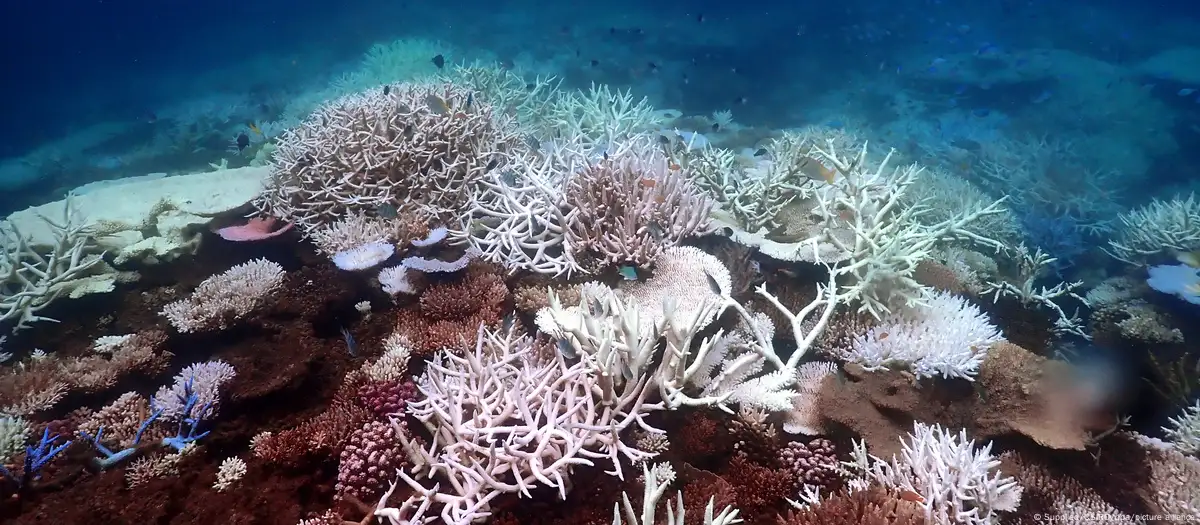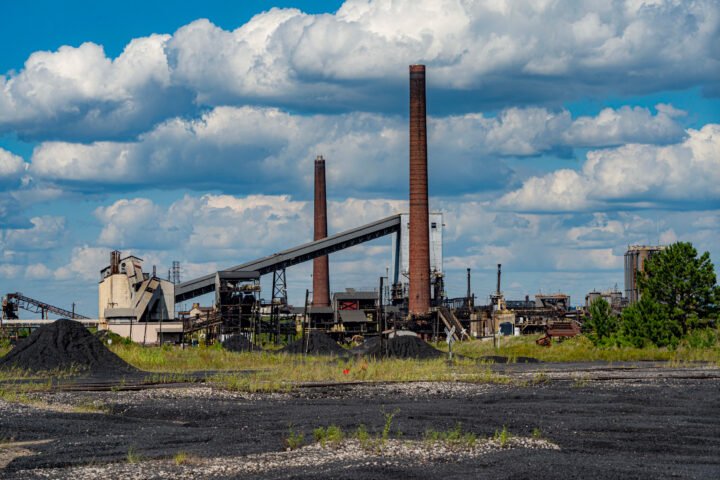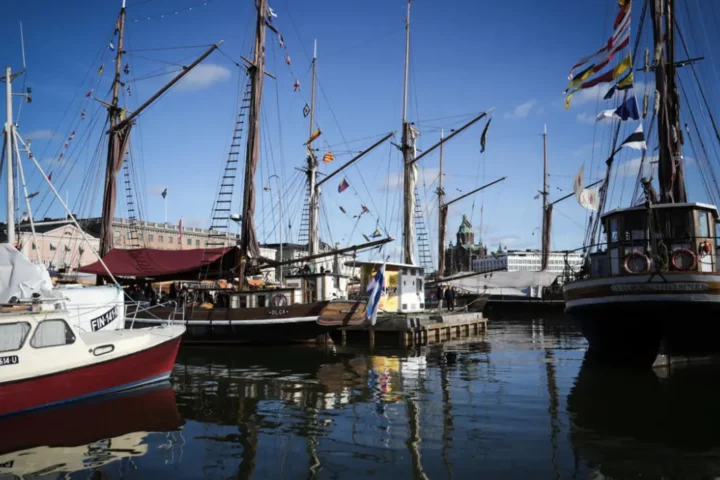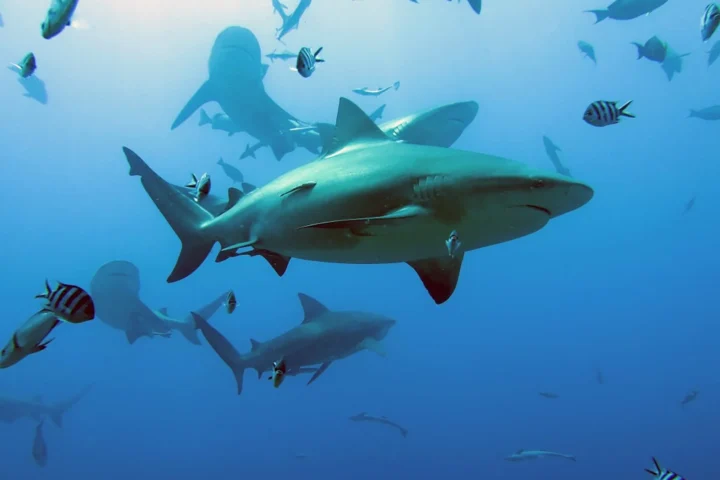Record water temperatures have led to more and more mass bleaching events along the Great Barrier Reef. Experts warn the reef is running out of time.
Water temperatures along the Great Barrier Reef off the northeast coast of Australia have hit a 400-year high, according to a major new study, which concludes that human-induced climate change is the most likely cause.
Using coral samples to reconstruct sea temperatures dating back as far as the 17th century, scientists found that temperatures before 1900 had been relatively stable, but that they had been increasing on average by 0.12 degrees Celsius (0.2 degrees Fahrenheit) per year since 1960.
“These are corals that have lived for 400 years and these are the warmest temperatures they’ve experienced,” said Helen McGregor, co-author of the study which was published in the science journal Nature in Australia on Thursday.
What is coral bleaching?
McGregor, a climate researcher at the University of Wollongong, said the “unprecedented” temperature increases had left her “extremely concerned” about the health of the famous 2,300-kilometer (1,400-mile) long reef, which is home to more than 600 types of coral and 1,625 species of fish.
This year, a mass “coral bleaching” event – which occurs when water temperatures rise by more than one degree Celsius (1.8 degrees Fahrenheit), causing the coral to shed nutrients and color – left 81% of the reef with extreme or high levels of damage, according to the report.
“The world is losing one of its icons,” said Benjamin Henley, an academic at the University of Melbourne and another one of the study’s co-authors, calling the situation “an absolute tragedy.”
“It’s hard to understand how that can happen on our watch in our lifetime,” he added.
Can coral reefs recover?
Corals have shown that they can recover, but McGregor said that increasingly high temperatures and almost annual bleaching events were pushing them to their limits.
“These changes, from what we’re seeing so far, appear to be happening too rapidly for the corals to adapt to so it really threatens the reef as we know it,” she warned.
At least 54 countries and regions have experienced mass bleaching of reefs since February 2023 as climate change warms the ocean’s surface waters, according to the US National Oceanic and Atmospheric Administration (NOAA).
The Great Barrier Reef is not currently on UNESCO’s list of endangered world heritage sites that are in danger, although the UN recommends it should be added.
“Coral reefs, as an ecosystem, are the first ecosystem on the planet to be existentially threatened by climate change,” said Richard Leck, World Wide Fund Australia’s head of oceans, reacting to the new study.
“At the moment, we can see the reef is resilient. It’s bounced back from previous coral bleaching events but at some point that elastic band will snap,” he told the AFP news agency.
“I think we have to be hopeful that the world is not going to stand by and let that happen.”
What are governments doing to protect reefs?
Governments around the world are indeed ramping up efforts to curb greenhouse gas emissions and invest in reef protection measures.
Australia has invested about $3.2 billion in improving water quality and protecting threatened species. But it’s also one of the world’s largest gas and coal exporters and has only recently agreed targets to become carbon neutral.
“It is a fraction of a second to midnight,” warned Leck.








